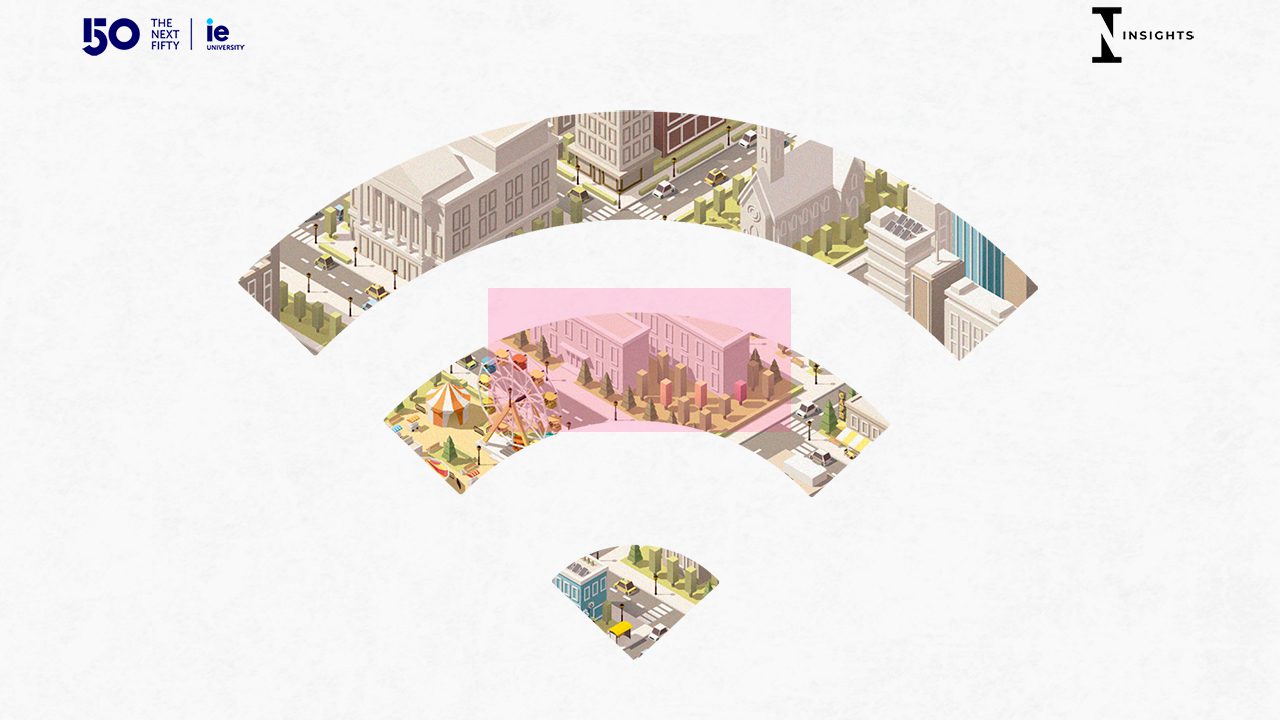Link copied
IE insights - IDEAS TO SHAPE THE FUTURE - Power

The Future of the Internet
Techno-solutionism versus governance to shape our digital life and spaces.
I’m sorry to disappoint you, dear reader. This article is not about generative AI, and predates the release of GPT-4. Back then, many technologists, businessmen, and consultants were selling the idea that the metaverse was the future of the internet. That was pure marketing. So far, what they called “metaverse” was only a rebranding of what we know as extended reality (XR), including virtual reality, augmented reality, and mixed reality.
Those technologies enable immersive education, digital twins, and other really interesting and potentially game-changing applications, but that is not the metaverse. If you want to understand why, and how misleading the PR claims are, I recommend this post by William Burns III who, amongst other roles, was Vice Chair of IEEE’s Metaverse Standards Group between 2010 and 2017.
Now that the new wave of generative AI has emerged, many proclaim that the metaverse is dead. The new cash cow has whipped the metaverse off the map. Web3 has also been left out of the limelight. Web3 (not to be confused with Web 3.0, or the ‘Semantic Web’) is a blockchain-based infrastructure for the distributed resolution of problems related to asset ownership. Blockchain is the technology that makes online decentralization possible. It brings new tools such as smart contracts, cryptocurrencies, and any other types of tokens.
Web3 evangelists say that the technology will give the internet back to the people, ensure privacy, end disinformation, and bring about participatory – or, at least, deliberative – democracy, amongst others. Will it get mainstream enough to deliver on its promises? That’s a different story. The so-called AI ‘foundation models’ – trained on an immense amount of data that makes them adaptable and capable of being applied to various tasks – could bolster both the development of the Web3, and the comeback of the Metaverse.
All of them: generative AI, blockchain, Web3, and immersive technologies could help build a better internet. They could also exacerbate existing issues within digital spaces: addiction, harassment, exploitation of privacy, discrimination, surveillance, disinformation, polarisation, job insecurity, social fragmentation, cybercrime… If the deployment of new technologies follows the same trajectory as social media and the big platforms, these problems are likely to be perpetuated and intensified.
How to avoid making the same mistakes? At this point, it’s clear that techno-solutionism won’t get us out of trouble. A proper governance system will. Governance is what the future of the internet is about. Governance to ensure that digitalization is fair, equitable, responsible, secure, and private; that serves the common good and shared prosperity.
Governance not only means rules, norms, and procedures, but also rights, incentives, eliminating barriers and fostering impact investment – putting money into innovation and into developing new technologies that help us to navigate all of the challenges that arise with digital transformation and connectivity.
Making the internet a healthier, more civic, democratic, respectful, responsible, resilient, and robust space is an obligation we owe to ourselves and to future generations. Getting the internet, AI, the metaverse, Web3, etc. on track will also mean ensuring that digital technologies make a significant contribution to global climate goals, and not the opposite (the AI industry is already more damaging to the environment than airlines, and Bitcoin consumes more energy annually than a country like Argentina.)
If the worst fears become true, the future of the internet could be similar to The Machine Stops, E.M Forster’s dystopia. A dystopia where we all live in an uninhabitable world, reduced to dust, where we are forced to live below the surface of the Earth, isolated in rooms, where the only thing that keeps us alive is our connection to the Machine. The Machine is a sort of metaverse that connects the world, where people interact through messages and holograms. It dominates everything and sets the rules of life.
None of this is inevitable. To avoid it, we must act, all of us: citizens, politicians, decision makers, business leaders, intellectuals, educators, professionals of all kinds, activists, caregivers… The moment to create the future is now. Paraphrasing my friend Albert Cañigueral: if you don’t build the future, others will do it for you (and you might not like it). A whole range of possibilities are at our fingertips. The destiny of the internet, and of humanity, too.
© IE Insights.
